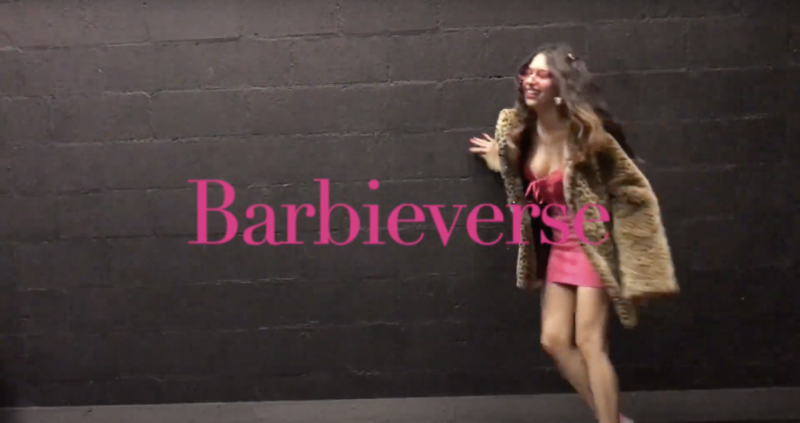
Barbieverse, which premiered on the DU Players YouTube channel this week, challenges any preconceived notions from the off by its very form. The play was written and co-directed by Shauna-Anne Lynch along with T Kokalj and follows Kelly, a nervous and slightly geeky girl who is terrified she will not make any friends at school. Her older and supposedly more glamorous sister Barbie stumbles in, sees her upset, and tells a long-winded tale about friendship and its importance in life.
Despite the engaging nature of this message, it was heavy handed and leaves one doubting the production’s target audience. The viewer is presented with a drunk Barbie telling a story about “flutter juice”, which was implied to signify alcohol. In opposition to this was the fairy story, with dialogue so basic that the audience assumed it could not possibly be presented to 20 year olds. Nevertheless, the cast complemented the storylines of Barbieverse and the ending revelation that the two “best friends” are lesbians added an interesting facet and undertone to the production.
Keeping in mind the difficulties involved with producing a play online, the use of Zoom was, in some ways, effective. The actors’ facial expressions were central to conveying the tonality of the scenes and were highlighted through the online medium. However, this meant that the focus was continuously placed on the dialogue, which was not the strongest aspect of the production. On the other hand, the costumes were an entertaining part of Barbieverse, as far as the audience could tell through the reduced view shown on Zoom.
The central theme of the play was friendship, of which the audience was constantly reminded. Certainly, some of the characters and their relationships to one another did become relatable throughout, with Barbie and Kelly being the most prominent here. Originally, Barbie prevails as an unreadable character and is difficult to empathise with. Over the course of the play, however, the audience begins to appreciate the time she has taken out of her day for her younger sister. Claudia Mosca puts on a great show as Barbie and her costume was fabulous. Along with Kelly, these two were the only characters not relayed through Zoom, which perhaps explains why their relationship was the strongest.
The best feature of the play was the music, composed and written by the talented Daire Kelly. The included songs were simultaneously funny and witty, seamlessly complementing the overall effect of the production. The singers, Sophia George’s Rapunzel, Kit Jensen’s Elina and Jessica Egbulan’s Gothel, did these wonderful songs justice.
Eva McCartney’s performance as Laverna, the witch from the east, was talented and nuanced, standing out as one of the best of the play. This performance would likely have been even more impactful on a live stage. Her sidekick Fungus on the other hand begs the question of the necessity for an unintelligibly annoying comic relief animal. Despite this, Ebony Haberlin’s performance as both Fungus and Bibble was convincing and added palpable comic relief to the piece.
Barbieverse is available to view on the DU Players YouTube Channel.
Correction: 07:10pm, Saturday, October 23rd.
An earlier version of this article incorrectly stated that the cast of Barbieverse was all female. In fact, two of the actors in the show are non binary.






